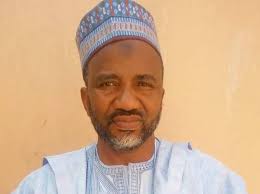Social, political and economic uncertainties are being projected by leading international bodies including the World Bank Group (WBG), International Monetary Fund.(IMF) and the World Economic Forum (WEF).
That of WEF was much more scary as it predicted a global risk that is eminent. WEF used data from the Global Risks Perception Survey 2022-2023 to highlight the risks the world was likely to face. They include high cost of energy, food crises, debt burden, and natural disasters.
WEF identified the cost-of-living crisis as the most severe threat facing developed and developing countries like Nigeria.
This is quite revealing and interesting. Although the attention of Nigeria is on the general elections which will begin in less than 25 days from today. However, the raging issues bothering many Nigerians is the economy just as WEF identified risks alongside controversial government policies compounding the situation.
One of such is the recently increased interest rate from 16.5 to 17.5%, based on the voting pattern of the Monetary Policy Committee (MPC) of the Central Bank of Nigeria (CBN). According to CBN, there is need to consolidate on the gains of the previous rate as against fighting inflation. However, the National Bureau of Statistics (NBS) figure showed a slight drop from 21.47%. to 21.34%.
Based on this development, the apex bank believes an aggressive rate would be better than a moderate rate.
Notwithstanding, a lot of analysts are of the opinion that this move by the CBN will not be effective in fighting inflation. They argue that we can’t fight inflation by jerking up rate consecutively, the fifth this time around (13; 14; 15.16.5 and now 17.5). Moreso, high rate on its own comes with its debilitating implication on businesses, investments and savings. There is also the multiple negative impact on production, employment and price stability.
Regrettably, a lot of criticisms greeted the naira redesign policy from inception. The scarcity of the redesigned naira denominations of N200, N500 and N1000 has not helped matters even though the CBN insists that the new notes are available in the Deposit Money Banks (DMBs). For the apex bank the issues about scarcity is the creation of the DMBs. So who are we to believe and hold accountable for the dilemma.
Consequently, as Nigerians continue to battle with the controversial monetary policy. The age long monster called fuel scarcity tops the hardship being faced by motorists, commuters, businesses and the vast majority of the people. This is one perianal national problem for an oil producing country that continues importing refined petroleum products. As if this is not enough, President Muhammadu Buhari, seeing the fuel scarcity as national embarrassment, recently constituted a 14-man panel.
To committee is be to chaired by the president himself, with members that include ministers of petroleum resources, finance, NNPC, NDPRM, CBN governor, DG DSS and others.
One can only wish them good luck if the term of reference of the committee and its mandate will not be sabotaged, just the APC presidential candidate Bola Tinubu alleged that fuel scarcity and naira redesign are handiwork of saboteurs.
What is then to done. First, we must acknowledge that these are self inflicted crises. Ours is a nation with abundance in human and natural resources but deficit in leadership that failed in economic governance and others.
Secondly, monetary policy must be meaningful to our economic development. Thus, the latest rate at 17.5% must be aggressive enough to reduce or eliminate inflationary pressure in our economy.
Thirdly, the introduction of redesigned naira notes must not increase the suffering of Nigerians.
Lastly, the president chairing a 14-man panel is cheery. But it must avoid cosmetic approach in tackling the fuel scarcity. There should be stiff sanctions and penalties against saboteurs in the distribution and logistics channel. The panel must be firm to succeed.
For us, what all the foregoing illustrate and reinforce is the centrality and indispensable need to have a visionary and bold leadership in charge of our economic governance.
Olamilekan, a political economist, writes from Ibadan, Oyo state via [email protected], 08107407870




